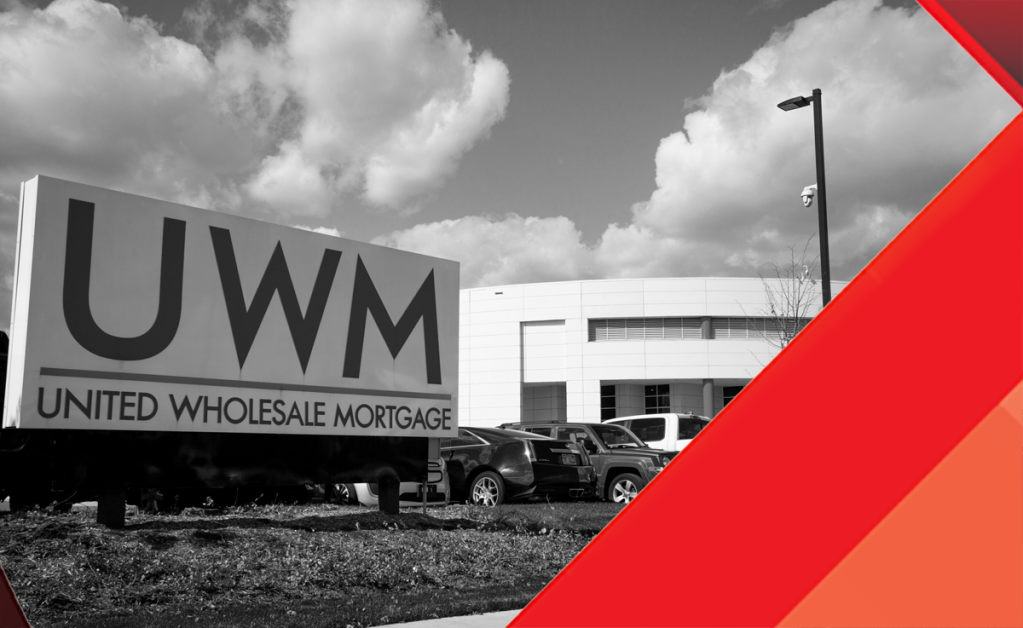
A heavyweight in the wholesale mortgage market, United Wholesale Mortgage, better known as UWM, has jumped headfirst into the private-label residential mortgage-backed securities market in 2021.
The Pontiac, Michigan-based nonbank lender has ushered to market three private-label RMBS transactions so far this year involving securitized loan volume of nearly $1.2 billion.
In addition, UWM has participated as the primary loan originator in four private-label RMBS issued through JPMorgan Chase. Those deals, measured by loan volume securitized, totaled $3.2 billion, with UWM-originated loans comprising 29% to 100% of the loan pools in those deals.
Private-label RMBS, or bonds backed by residential mortgages, are not insured or guaranteed by the government-sponsored enterprises (GSEs) Ginnie Mae, Fannie Mae or Freddie Mac. The data on the UWM private-label deals was provided to HousingWire by New York-based Kroll Bond Rating Agency and is current year-to-date through mid-October.
UWM’s initial RMBS deal, which closed in May, involved 508 residential mortgages with an aggregate principal balance of some $352 million, Kroll reports. The lender’s second private-label transaction closed in July and was collateralized entirely by 1,208 agency-eligible investment-property loans with an aggregate principal balance of $394 million. UWM’s final solo deal to date closed in early September, and it also was backed entirely by 1,186 agency-eligible investment-property loans with a total principal balance of $421 million.
The four JPMorgan Chase private label deals that UWM served as the primary originator for were issued through the JPMorgan Mortgage Trust, or JPMMT, and involved loan pools with an aggregate principal balance of some $3.2 billion. The UWM loan-origination participation rate in those four deals was as follows: 28.6%, 29.9%, 65.3% and 100% — with the latter deal, which closed Sept. 30, involving a loan pool with an aggregate principal balance of $707 million, according to Kroll.
UWM did not respond to a request for comment for this story.
“The private label RMBS deals [detailed in the Kroll report] are a subset of all private-label deals, what we call RMBS 2.0,” said Jack Kahan, senior managing director of residential mortgage-backed securities at New York-based Kroll. “Our report does not include RPL [reperforming loan] or legacy deals.”
What the report does cover are all post-financial crisis deals involving prime and nonprime private-label RMBS transactions. Also backed out of the Kroll numbers in this report are the GSE’s credit-risk transfer transactions, which otherwise skewed the results.
“In the credit swap [CRT] deals, only a portion of the balance is sold [to private investors],” Kahan explained. “So, the total numbers for those deals reflected in our report is only a reference balance, and only a small percentage of that risk is sold, probably in the range of 4% to 5%.”
Reporting on private-label RMBS, in general, rarely offers an apples-to-apples comparison because the tallies vary by the source of the information and the data cuts employed. Trade publication Inside Mortgage Finance, for example, reports that the total loan volume of “non-agency MBS” private label deals was $100.5 billion year-to-date through August 2021 — and some $15.2 billion for March 2021 alone.
The IMF number includes prime and expanded-credit securitizations. It exceeds by a wide margin the Kroll mark of nearly $67 billion in total private label deal volume year to date through early October, including $18 billion for the first quarter of 2021.
The IMF and Kroll numbers, however, vary again from the tally reported by Ginnie Mae, which states the following in its August 2021 Global Market Analysis Report: “As of Q1 2021, the share of private label securitizations is up approximately 84% from Q4 2020 and is at its highest level ($13.4 billion) since Q4 2019.”
Regardless of the variances in the various reports, largely due to variables tracked, it is clear the private label RMBS market is on fire this year so far. An expanding economy, upwardly sloping interest rates and increasing home prices seem to assure that trend will continue — given those dynamics will place many future mortgages outside the bounds of the underwriting standards for GSE-backed loans and securities. In addition, because they lack a government guarantee, private-label securities offer higher yields than those issued by Fannie Mae and Freddie Mac, which is attractive to many investors.
“With national home prices continuing a historic upward march throughout 2021 and the economy generally continuing to show signs of recovery from COVID-driven stress, our outlook for the [private-label] RMBS sector is positive as we expect 2021 issuance to surpass post-global financial crisis levels by considerable margins, to reach an estimated $96 billion,” a recent Kroll report on the 2021 RMBS sector stated.






